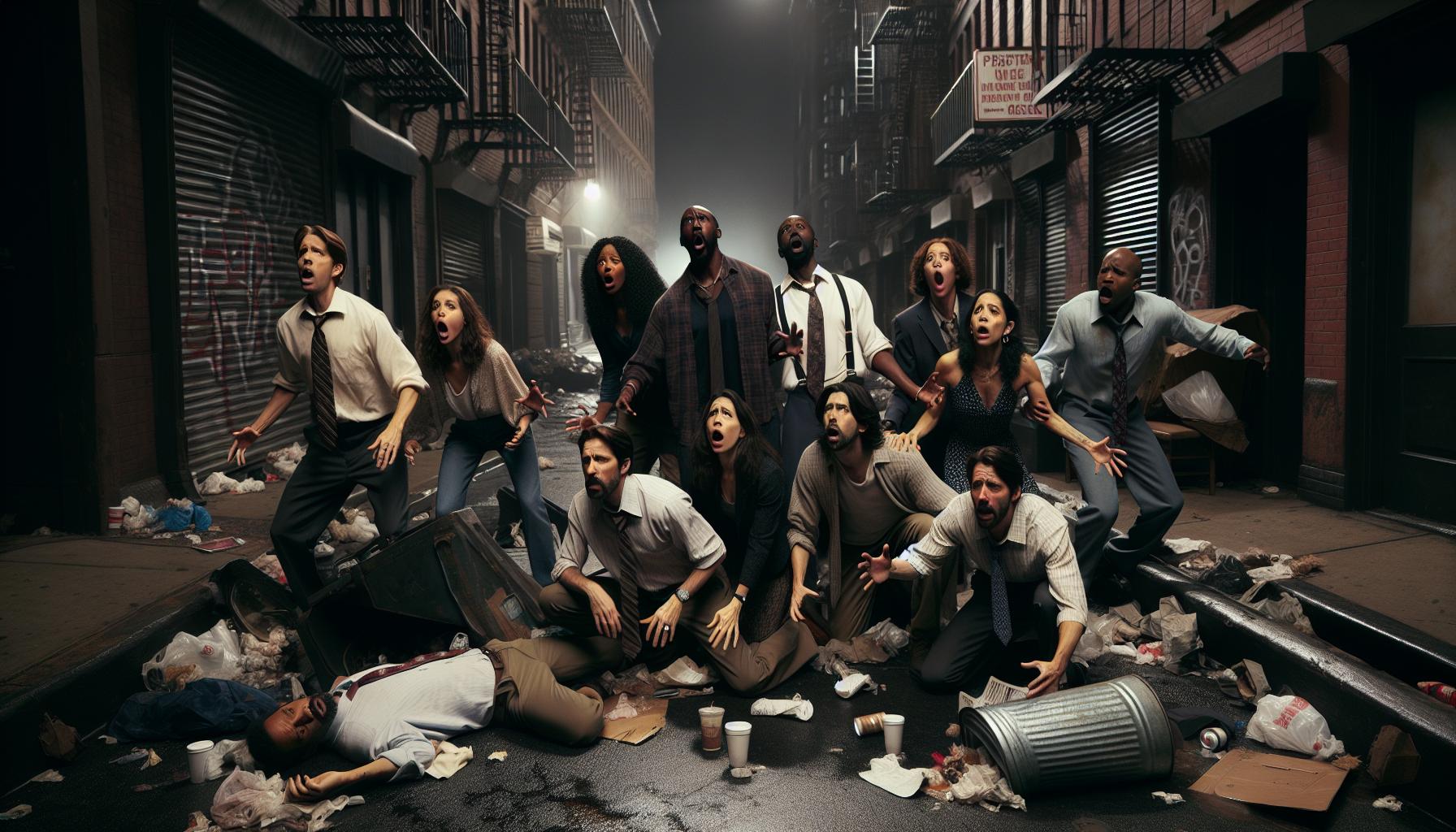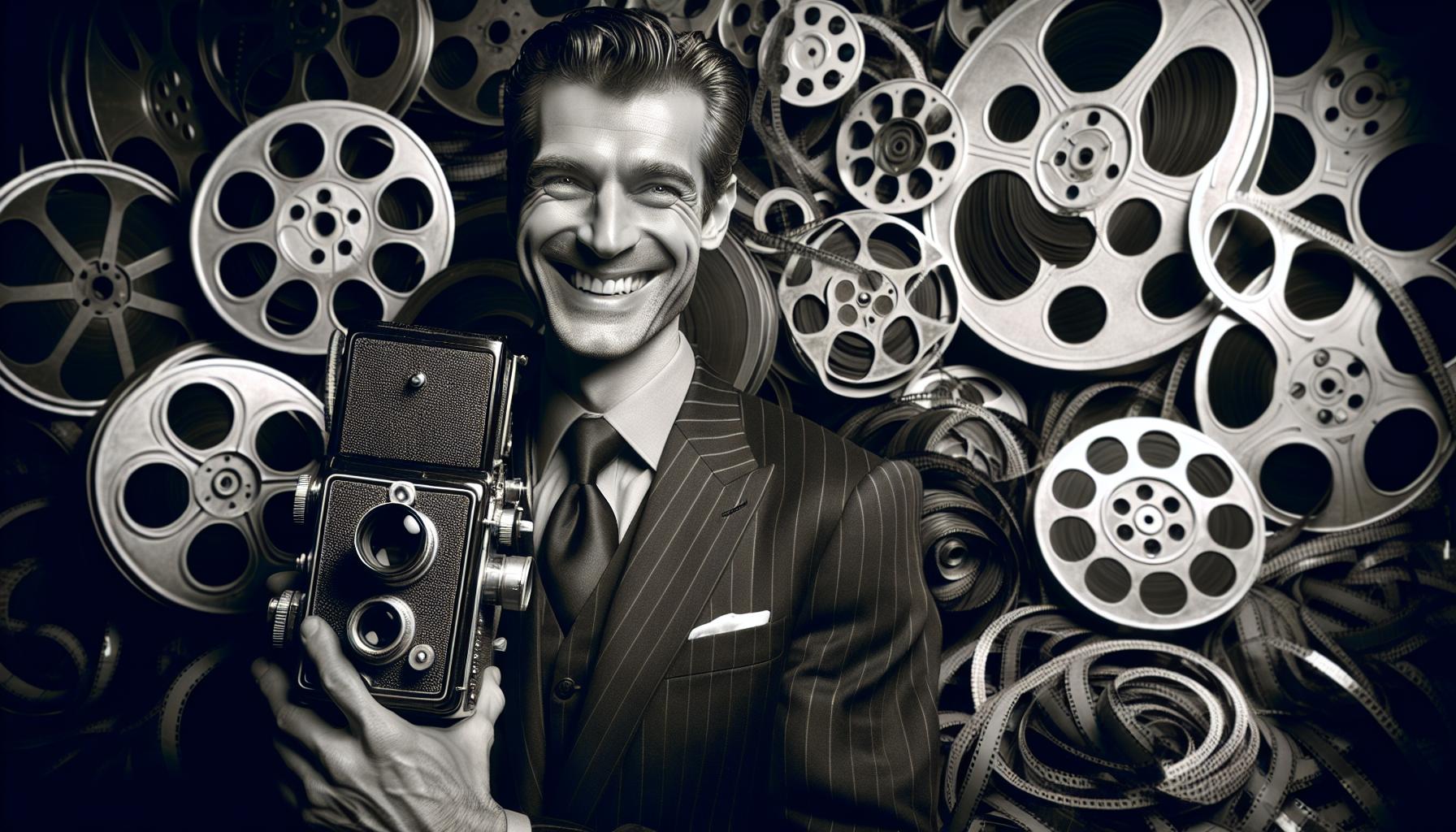Physical Address
304 North Cardinal St.
Dorchester Center, MA 02124
Physical Address
304 North Cardinal St.
Dorchester Center, MA 02124

Dark humor meets cinematic brilliance in black comedy movies where laughter intertwines with the macabre. These films challenge viewers to find humor in life’s darkest moments while tackling taboo subjects that mainstream comedies wouldn’t dare touch. From Dr. Strangelove to Fargo the genre has mastered the art of making audiences laugh uncomfortably at death divorce and disaster.
Today’s black comedies continue pushing boundaries by blending sharp wit with social commentary. Movies like Parasite and The Menu showcase how filmmakers use dark humor to expose society’s flaws while keeping viewers entertained. It’s a delicate balance of shocking moments perfectly timed jokes and storytelling that makes audiences question whether they should be laughing at all – and that’s exactly what makes these films so captivating.
Black comedy movies create unique entertainment by transforming disturbing or tragic elements into sources of humor. This distinctive approach sets them apart from conventional comedy films through specific characteristics.
Traditional comedies focus on lighthearted situations with clear punchlines while black comedies derive humor from uncomfortable truths or tragic circumstances. Black comedy movies tackle serious subjects like death, violence or social issues through a satirical lens. The humor emerges from absurd situations rather than obvious jokes or physical comedy. Films like “In Bruges” blend violent crime scenarios with deadpan humor creating an unsettling yet entertaining experience. Unlike mainstream comedies that aim for broad appeal, black comedies target audiences who appreciate cynical perspectives on life’s darker aspects.
Black comedy films challenge established social norms by addressing forbidden topics through satirical commentary. These movies explore themes like suicide in “Heathers,” cannibalism in “Fresh” or class warfare in “Parasite” with biting wit. The genre confronts controversial subjects by exposing their inherent absurdity rather than treating them with conventional reverence. Black comedies break down cultural barriers by forcing audiences to confront uncomfortable truths about society human nature. Films in this genre often critique social institutions power structures through exaggerated scenarios that highlight real-world contradictions inequalities.

Black comedy films transformed from subtle satire to bold social commentary across cinematic history. The genre’s development reflects changing societal attitudes toward controversial subjects through dark humor.
Stanley Kubrick’s “Dr. Strangelove” (1964) established black comedy’s cinematic framework by satirizing nuclear war anxieties. Charlie Chaplin’s “The Great Dictator” (1940) pioneered political satire through its mockery of Adolf Hitler during World War II. Ernst Lubitsch crafted “To Be or Not to Be” (1942), turning Nazi occupation into sophisticated dark humor. Preston Sturges elevated screwball comedy into social criticism with “Sullivan’s Travels” (1941), exploring poverty through a director’s misadventures. These groundbreaking films laid the foundation for mixing tragedy with comedy, challenging audiences to laugh at serious subjects.
“Pulp Fiction” (1994) revolutionized black comedy by combining violence with witty dialogue in interconnected stories. “Fargo” (1996) brought dark humor to middle America through its portrayal of bumbling criminals against a stark winter backdrop. “In Bruges” (2008) mastered the balance between existential crisis and comedic timing through two hitmen’s exile in Belgium. “The Royal Tenenbaums” (2001) crafted dysfunctional family dynamics into sophisticated dark humor. Recent entries like “Three Billboards Outside Ebbing Missouri” (2017) demonstrate the genre’s evolution toward complex social commentary mixed with sharp wit.
Black comedy movies incorporate distinct elements that set them apart from traditional comedies. These elements create a unique viewing experience that challenges audience expectations while delivering dark humor.
Black comedy films tackle sensitive topics like death, violence, racism or mental illness with a humorous twist. Films such as “Heathers” address teenage suicide through dark satire, while “The Death of Stalin” transforms political purges into comedic situations. These movies push boundaries by presenting taboo subjects through absurdist scenarios, creating uncomfortable laughter that forces viewers to confront difficult truths. Directors like Taika Waititi in “Jojo Rabbit” demonstrate how black comedies transform controversial historical events into pointed commentary. The genre excels at presenting morally complex situations that blur the lines between right and wrong, good and evil.
Black comedy films use satire to critique social institutions, political systems or cultural norms. Movies like “Fight Club” mock consumer culture through razor-sharp wit, while “Sorry to Bother You” exposes corporate exploitation through surreal humor. The genre employs exaggeration to highlight societal flaws, as seen in “The Lobster’s” absurdist take on relationship pressure. These films create detailed worlds that mirror real issues through grotesque distortions. Directors like Jordan Peele in “Get Out” blend horror elements with dark humor to expose systemic racism. The satirical approach allows filmmakers to address serious topics while maintaining audience engagement through comedy.
Directors who mastered black comedy transformed the genre through distinctive visual styles and narrative approaches. Their unique perspectives shaped how dark humor interacts with serious themes in cinema.
Stanley Kubrick revolutionized black comedy with “Dr. Strangelove” (1964), creating a masterpiece that satirized nuclear warfare anxieties. His meticulous attention to detail enhanced the absurdist elements in his films through precise framing and calculated pacing. Kubrick’s signature style incorporated stark lighting contrasts and symmetrical compositions to amplify the psychological impact of dark humor. His influence extends beyond “Dr. Strangelove” to films like “A Clockwork Orange” (1971), where he blended violence with satirical elements to critique society. The director’s approach to black comedy emphasized the grotesque aspects of human nature through carefully choreographed scenes and deadpan delivery.
Joel and Ethan Coen established their trademark style through films like “Fargo” (1996) and “The Big Lebowski” (1998). Their narratives combine quirky characters with violent scenarios, creating a distinct blend of dark humor and crime drama. The Coens’ approach features regional dialects, sudden violence and moral ambiguity to heighten comedic tension. Their characters often face absurd situations that spiral out of control, leading to darkly humorous consequences. The brothers excel at crafting memorable dialogue that balances wit with underlying menace, evident in “Burn After Reading” (2008) and “Inside Llewyn Davis” (2013). Their visual style emphasizes wide shots and deadpan reactions to amplify the comic impact of tragic events.
Black comedy films have evolved significantly across different decades, pushing boundaries and challenging societal norms through dark humor and satire. Each era brings distinctive contributions to the genre, reflecting the cultural anxieties and social issues of their time.
“Dr. Strangelove” (1964) established a new benchmark for political satire by turning nuclear annihilation into dark comedy. “Harold and Maude” (1971) transformed taboo subjects like death and May-December romance into touching humor. The 1980s brought “Heathers” (1988), tackling teenage suicide and high school hierarchies with biting wit. “Brazil” (1985) merged dystopian themes with absurdist comedy to critique bureaucratic control. “The War of the Roses” (1989) turned marriage dissolution into a darkly comic battlefield, featuring Michael Douglas and Kathleen Turner in career-defining roles.
“Fargo” (1996) launched a new era of crime-centered black comedies with its distinctive Midwestern charm. “In Bruges” (2008) elevated hitman narratives through existential humor and moral complexity. “The Grand Budapest Hotel” (2014) crafted a meticulously stylized world where fascism meets farce. “Three Billboards Outside Ebbing, Missouri” (2017) balanced grief with gallows humor. “Parasite” (2019) masterfully blended class warfare with dark comedy, earning unprecedented Academy Awards recognition. “The Menu” (2022) served sharp commentary on elite dining culture through increasingly absurd scenarios.
Black comedy films revolutionized storytelling techniques in contemporary cinema through their distinctive approach to controversial subjects. Modern filmmakers frequently incorporate elements of dark humor to address societal issues while maintaining commercial appeal. Netflix productions like “Don’t Look Up” demonstrate how streaming platforms embrace black comedy to tackle climate change denial social media manipulation.
Box office successes reflect the growing mainstream acceptance of black comedy:
| Film | Year | Global Box Office |
|---|---|---|
| Parasite | 2019 | $258.8 million |
| Jojo Rabbit | 2019 | $90.3 million |
| Three Billboards | 2017 | $159.2 million |
Independent filmmakers leverage black comedy to challenge traditional narrative structures. Films like “Sorry to Bother You” blend surrealism with social commentary creating new visual storytelling methods. Directors Jordan Peele Emerald Fennell integrate elements of horror thriller genres expanding black comedy’s creative boundaries.
Social media platforms amplify black comedy’s cultural impact through viral clips memes increasing audience engagement. Streaming services algorithms promote dark comedies to viewers based on watching patterns leading to broader exposure. Award recognition for films like “The Favourite” “Promising Young Woman” validates black comedy’s artistic merit in contemporary cinema.
The genre’s influence extends to:
International filmmakers adopt black comedy techniques to address cultural specific issues reaching global audiences. South Korean films like “Parasite” demonstrate how dark humor transcends language barriers resonating with viewers worldwide.
Black comedy continues to push boundaries and challenge societal norms through its unique blend of dark humor and social commentary. From classic films like “Dr. Strangelove” to modern masterpieces like “Parasite” the genre has proven its ability to tackle serious issues while keeping audiences entertained.
The evolving landscape of black comedy reflects changing cultural attitudes and a growing appetite for sophisticated storytelling. As filmmakers continue to experiment with darker themes and satirical elements their work resonates with viewers who appreciate both intellectual depth and unconventional humor.
The genre’s lasting impact on cinema proves that sometimes the best way to confront life’s darkest aspects is through laughter – even if that laughter makes us uncomfortable.